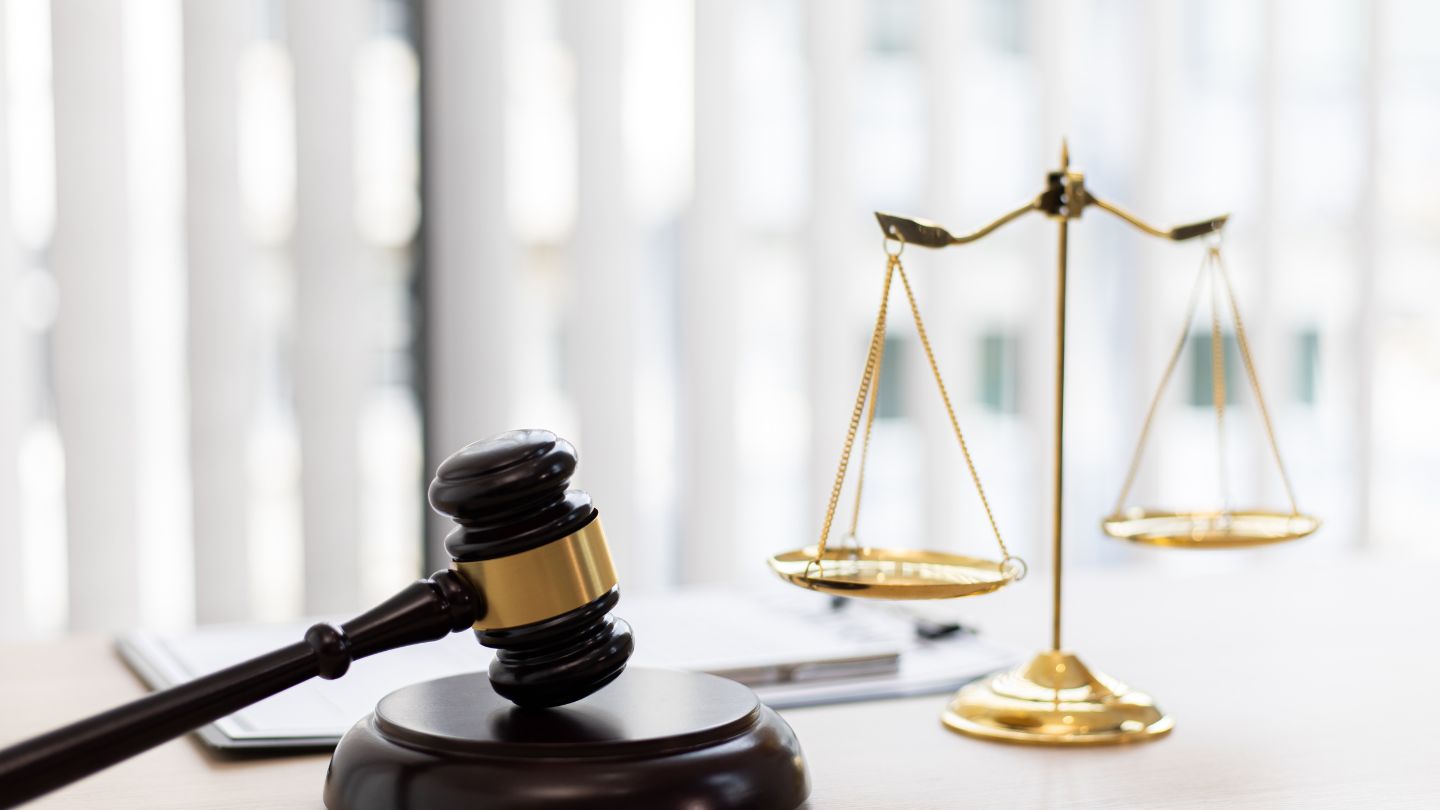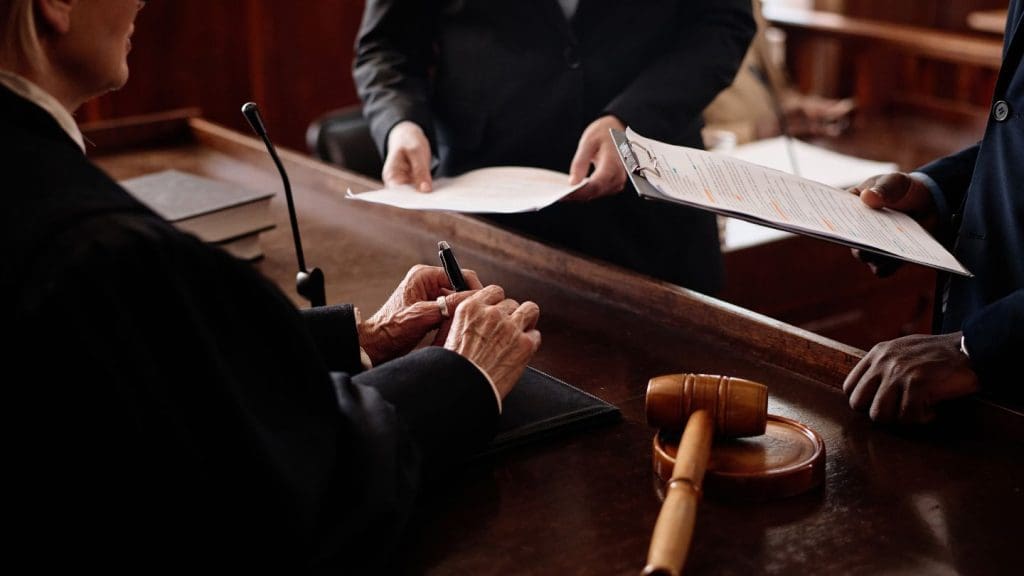The role of a criminal defense lawyer in plea bargaining is critical in securing a favorable outcome for the defendant. They negotiate with prosecutors to reduce charges or penalties, evaluate case evidence, and offer strategic advice. This blog will explore the intricacies of their role in plea negotiations, the types of plea bargains, and the potential benefits and risks involved.
Key Takeaways
- Plea bargaining is a vital part of the criminal justice system, offering benefits such as reduced sentences and expedited resolutions for defendants.
- Defense attorneys play a critical role in plea negotiations, ensuring their clients understand the implications of accepting a deal and advocating for the best possible terms.
- While plea bargains can provide favorable outcomes, they also pose risks, including pressure on defendants to plead guilty, which may lead to wrongful convictions and significant long-term consequences.
Understanding Plea Bargaining
The plea-bargaining process is an integral part of the criminal justice system, serving as a critical method for expeditiously settling cases. This procedure involves a plea deal where the defendant consents to plead guilty to a reduced charge in exchange for concessions from the prosecutor. The use of plea bargains plays an essential role in addressing overloaded court dockets and scarce judicial resources, which enables more serious cases to receive adequate attention.
From the standpoint of those accused, engaging in plea bargaining can provide substantial benefits. By accepting a plea offer, defendants might evade harsher penalties that could result if they were convicted at trial, thereby achieving a more favorable outcome. Resolving their case through this means leads to quicker legal resolutions. Thus permitting individuals involved to continue with their lives sooner while simultaneously providing prosecutors with guaranteed convictions and preserving valuable prosecutorial assets.
For individuals confronting criminal charges who are considering navigating the complexities inherent within the art of negotiating pleas, effective negotiation requires comprehensive knowledge along with strategic acumen. The intricacies surrounding various types of agreements available will be examined, alongside exploring how defense attorneys facilitate this intricate aspect of law practice.
The Defense Attorney’s Role in Plea Negotiations

The significance of the defense attorney’s role in the plea bargaining process is immense. As pivotal players, they engage with prosecutors to champion their clients, striving to obtain optimal conditions on behalf of those they represent. This vital role surpasses just hammering out a deal. It includes counseling clients, sifting through evidence meticulously, and assuring that every step taken serves the defendant’s interests best.
At the onset of plea negotiations, dialogue ensues between the prosecutor and the defense attorney about a prospective plea deal. Herein lies where a defense attorney scrutinizes what has been presented by the prosecution, weighing against possible terms such as acknowledged charges and suggested sentencing, to pave the way for an eventual agreement.
It’s essential that defendants indulge in candid communication with their lawyer regarding all aspects of entering a plea bargain. This encompasses understanding waived rights, too. The caliber of legal counsel received is paramount to prevent any misapprehensions around these rights and subsequent outcomes, thereby minimizing unwarranted risks attached to accepting such agreements.
The role of a criminal defense attorney is crucial from the moment of arrest through trial. This blog explores how these legal experts ensure client rights, build strong defense strategies, and address pre-trial motions. Learn how a criminal defense attorney can make a critical difference in navigating the justice system.
In the following text, we delve into various kinds of pleas available along with unique considerations tied thereto.
Types of Plea Bargains
The plea-bargaining process encompasses various forms of negotiations, each with distinct outcomes and potential consequences. It is essential for anyone involved in the plea-bargaining process to understand these different types. The four main categories are charging bargaining, count (or multiple charges) bargaining, sentence bargaining, and fact bargaining.
Understanding the implications and consequences associated with each type of plea bargain is crucial when navigating through the plea negotiation tactics.
In a charge bargain scenario, a defendant agrees to plead guilty to a lesser offense than originally charged. This approach can lead to reduced charges against the defendant and typically results in facing less severe penalties upon sentencing.
Count or multiple charges bargaining involves a situation where a defendant pleads guilty to certain counts while other counts may be dismissed. Doing so could substantially reduce the total number of charges brought against them and possibly secure a lighter sentence.
Sentence bargains revolve around an agreement wherein pleading guilty comes with an understanding that there will be an opportunity for negotiating down from potentially steeper punishment, effectively securing a reduced sentence upfront by means of strategic discussions between defense counsel and prosecutor.
Fact bargains occur when defendants consent to specific facts pertaining to their case as part of their guilty admission. They do so, hoping this admission precludes prosecutors from introducing additional incriminating evidence, which could negatively impact any impending judgment or verdict rendered unto them.
Each form requires careful deliberation along with skillful negotiation on behalf of both parties, which is particularly important if ensuring favorable outcomes remains a priority amongst legal representatives advocating on behalf of accused individuals during such proceedings.
Benefits of Accepting a Plea Deal

Defense attorneys often negotiate plea bargains that provide several potential advantages for individuals facing criminal charges. By accepting a plea deal, defendants usually receive certainty regarding their legal outcomes, an opportunity to obtain reduced sentences, and expedite the resolution of their cases without the uncertainties associated with trials. Opting to accept a plea bargain can be especially beneficial given the unpredictable nature of courtroom proceedings.
By agreeing to a plea bargain where the defendant pleads guilty, they frequently encounter less severe penalties compared to those potentially received if found guilty at trial. Advantages include obtaining probation instead of imprisonment and facing lesser charges, all contributing to increased control over one’s legal destiny during complex negotiations. These benefits underline why accepting such agreements is crucial within an often-daunting judicial system.
The sheer volume of cases—90-95%—that conclude with negotiated pleas rather than court battles underscores both the efficiency and practicality that these arrangements offer in resolving criminal charges. Defense counsel typically coordinates with prosecutors, resulting in more advantageous terms for clients, including diminished or dismissed allegations. Consequently, many choose to consent to these deals when presented with serious accusations, in large part because it might result in favorable conditions being set forth as opposed to other possible resolutions through litigation.
Risks Associated with Plea Bargains
Plea bargains can be beneficial but come with inherent risks. Defendants might feel forced into accepting a plea deal under the apprehension of facing more severe consequences if their case goes to trial, or they may want to expedite the legal process, even when innocent. This could result in an unjust conviction due to external pressure.
When defendants agree to accept a plea bargain, they must relinquish their right to contest charges during a trial and face restrictions on their ability to appeal as well as other collateral repercussions, such as forfeiting certain civil liberties or professional credentials. These consequences can profoundly affect someone’s life and employment prospects over time. Should individuals plead guilty without committing the crime, it not only disrupts their lives but also challenges the credibility of our judicial system through these miscarriages of justice associated with guilty pleas.
Lastly, taking a plea bargain off the table for those accused means losing out on presenting one’s side within court proceedings that can otherwise reveal truths, potentially resulting in unfair judgments against them. Such concerns underscore why having counsel from an adept criminal defense attorney is critical. It enables you to navigate through plea bargaining tactfully while making choices that are properly informed about whether pleading guilty serves your best interest.
Factors Influencing Plea Bargain Decisions
The decision-making process regarding plea bargains is influenced by several key factors. The nature of the offense and how strong the evidence presented by prosecutors can greatly affect the conditions of plea deals offered. A robust case on behalf of the government may lead to offers that aren’t as advantageous, while a less compelling batch of evidence might allow for more favorable terms.
Factors such as public interest and prosecutorial discretion also play a role in shaping these agreements, with cases that draw significant public attention or involve serious offenses typically allowing for less wiggle room during discussions. Constraints like sentencing guidelines and mandatory minimum sentences make it crucial for defense attorneys to adeptly work within these boundaries.
A defendant’s willingness to collaborate with prosecutors or exhibit responsibility through actions such as restitution payments or community service often leads to better outcomes in plea negotiations. Crafting an effective defense strategy and its delivery significantly contribute to negotiation proceedings, highlighting why retaining a competent criminal defense attorney experienced in such matters is essential.
Ensuring Informed Decision-Making
The process of plea-bargaining demands that defendants make knowledgeable choices, as they need to appreciate the full extent of a plea deal’s implications, especially the forfeiture of critical constitutional protections such as trial by jury and shielding oneself from self-incrimination.
Engaging with a skilled defense lawyer is essential when maneuvering through the intricacies of plea negotiations. A seasoned legal representative can assess the solidity of evidence and possible defenses at hand, guiding clients towards decisions that align with their utmost welfare. It is important for individuals to consider how accepting a plea bargain may impact their prospects and personal affairs.
When facing potential conviction at trial, defendants might be swayed under duress to agree to a plea offer—an ethical dilemma. Defense attorneys have an obligation to ensure their clients comprehend all aspects fully and give consent to any offered pleas. Upholding this ethical mandate is vital in maintaining fairness within our justice system and preserving its overall integrity.
Ethical Considerations in Plea Bargaining
The ethics of the plea-bargaining process are a priority, with concerns that coercion may lead to unjust outcomes. In situations where defendants face legal pressure, there is a risk that they might not make choices based on adequate knowledge, challenging the fairness and integrity inherent in the criminal justice system.
Critics contend that plea bargains can compromise both accountability and constitutional rights, casting doubt over their justness and equity. It’s imperative for defense attorneys to ensure clients comprehend every aspect of the plea deal being offered, are aware of all rights they relinquish, and any potential consequences before voluntarily consenting to it.
On their part, prosecutors carry an ethical responsibility to pursue justice, which includes thoroughly investigating charges well past establishing probable cause. The absence of universally applied model rules specifically aimed at governing ethics within plea bargaining could result in inconsistent practices or even potential abuse. These considerations underscore how critical transparency and equity are within the framework of negotiating pleas.
Case Studies: Successful Plea Bargains

Illustrations from actual events offer valuable lessons on the effectiveness of plea bargains and the essential function defense attorneys serve in securing favorable results for their clients. For instance, Lynne Torgerson adeptly obtained a dismissal for an individual accused of a fifth-degree controlled substance crime in Hennepin County, showcasing her mastery in legal negotiation and strategy within a serious felony case.
In another notable situation involving criminal law, a client facing felony DWI charges had those charges diminished to a misdemeanor-level offense through skilled advocacy, thereby circumventing incarceration. Such outcomes emphasize the importance placed upon seasoned criminal defense attorneys when dealing with intricate aspects of plea bargains and achieving less severe penalties for individuals they represent.
These scenarios underline how pivotal plea agreements can be in reaching advantageous conclusions for defendants. They demonstrate the indispensable contribution made by advocates such as Lynne Torgerson, whose proficiency and deft bargaining abilities are instrumental to realizing triumphant resolutions within criminal cases.
Final Thoughts on Plea Bargaining
Plea bargaining remains a crucial component of the criminal justice system, offering a pathway to resolve cases efficiently while potentially securing better outcomes for defendants. The guidance and expertise of a defense attorney are vital throughout this process, ensuring defendants understand their options and make informed decisions. By considering the types of plea bargains alongside their benefits and risks, defendants can maximize their chances of achieving a fair resolution.
If you or a loved one is facing criminal charges, seeking professional legal guidance is essential. Lynne Torgerson specializes in navigating the complexities of plea bargaining to help clients achieve the best possible outcome. Trust Lynne Torgerson, your dedicated criminal defense attorney in Minneapolis, to advocate for your rights and guide you through the legal process with skill and dedication.
Frequently Asked Questions
What is a plea bargain?
In a plea bargain, the defendant agrees to admit guilt for a less severe charge while receiving certain concessions from the prosecutor. This often results in lighter sentences.
By accepting this agreement, the defendant can avoid more serious potential consequences and speed up the judicial process.
What are the benefits of accepting a plea deal?
Taking a plea deal can secure definite legal results, possibly result in more lenient sentences, and achieve a faster resolution compared to undergoing a trial.
Opting for this route can considerably alleviate the anxiety and unpredictability that come with protracted judicial processes.
What are the risks associated with plea bargains?
Plea bargains carry risks such as being pressured into accepting deals, relinquishing the right to contest charges in court, and the possibility of miscarriages of justice.
It is crucial to understand these risks before deciding.
What factors influence plea bargain decisions?
Plea bargain decisions are primarily influenced by the nature of the crime, the strength of the evidence, the public interest, prosecutorial discretion, and the level of cooperation from the defendant.
Understanding these factors can help you navigate the plea-bargaining process effectively.
What role does a defense attorney play in plea negotiations?
An attorney specializing in defense is pivotal during plea negotiations, as they engage in bargaining and offer counsel to guarantee their clients are making decisions that are well-informed, reflecting a thorough analysis of the available evidence.
Such backing from the attorney is critical to secure an outcome that is most favorable for the client.



